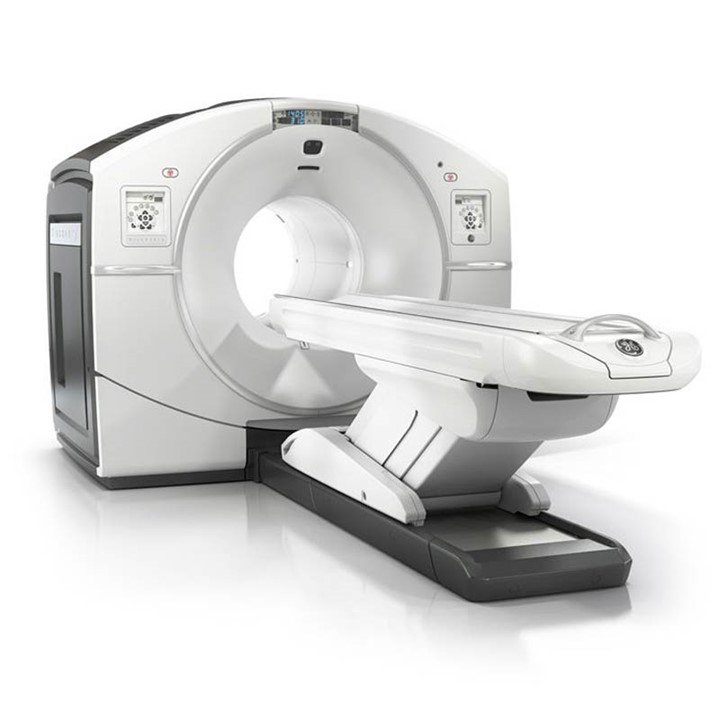Computed Tomography (CT Scan)
With a CT, doctors do not have to cut into the patient or push tubes or
cameras into the body. Unlike an MRI however, a CT can be done even if
the patient has a pacemaker or other implanted devices.
For more information call 805-737-3375
Like an MRI, a CT scan is a non-invasive procedure to see the organs inside
of your body. Though an MRI and CT scan share many similarities, these
procedures are entirely different from one another. Knowing the difference
between an MRI and CT scan can help you make the right decision if you
need an imaging test.
What Is a CT Scan?
 A CT scan uses X-ray technology to take a series of photos from different
angles around your body. Like an MRI, it can provide your doctor with
a clear view of your internal structures, including bones, soft tissues,
and blood vessels.
A CT scan uses X-ray technology to take a series of photos from different
angles around your body. Like an MRI, it can provide your doctor with
a clear view of your internal structures, including bones, soft tissues,
and blood vessels.
Services we offer:
- Abdominal and pelvis CT scan
- Cranial or head CT scan
- Spinal CT scan for the cervical spine (the seven vertebrae that begin at
the base of the skull), thoracic spine (the spine in the upper back and
abdomen), and the lumbosacral spine (the lower spine and surrounding tissues)
- Orbit CT scan (a scan of the eye sockets (orbits), eyes, and surrounding bones)
- Chest CT scan
CT Scan Risks and Benefits
Benefits
- Highly effective for evaluating your entire body
-
Helping your doctor determine the stage of cancer
(Cancer staging and diagnosis are among the top uses of a CT scan.)
- Suitable for evaluating tiny bone structures such as those in the hands
and feet and for evaluating chest and lung conditions.
Risks
-
Exposes your body to radiation.
However,
the NIH says that the risk of damage from radiation during one CT scan is minimal.
People who have multiple CT scans over time may be at higher risk for
radiation.
-
Harming an unborn baby, kidney damage, or an allergic reaction to the contrast dye.
Like MRIs, most CT scans involve contrast dye to allow your internal structures
to appear more clearly in the images.
CT Scan General
Preparation Instructions
Registration
On the day of your appointment, please arrive 1 hour before your appointment
time to register. You can print and fill out the CT forms which should
speed up the process.
Preparing for a CT Scan
- Please bring all the CT forms with you to your appointment.
- Please leave your jewelry and valuables at home. We do have lockers but
are limited in space.
- Please wear comfortable clothing. Please avoid clothing with snaps, zippers,
or other metal.
-
For Contrast Patients:
- If your exam requires IV or Oral contrast, please do not eat or drink 4
hours before your appointment time.
-
If you have
difficult veins and require IV contrast, please arrive 1 ½ hour before your scheduled time.
CT Contrast Material
Contrast may be needed for some CT scans. This can help highlight areas
of your body that are being examined. The contrast helps block X-Rays
which can help emphasize blood vessels, intestines, or other structures
which appear white on the images.
If contrast material will be given by the following methods:
- Oral Contrast: Liquid that contains contrast material. This may taste unpleasant.
- Injection: Injected through a vein in your arm. You may experience feeling
warm during the injection or a metallic taste in your mouth.
CT Patient Forms
For more information call 805-737-3375
 A CT scan uses X-ray technology to take a series of photos from different
angles around your body. Like an MRI, it can provide your doctor with
a clear view of your internal structures, including bones, soft tissues,
and blood vessels.
A CT scan uses X-ray technology to take a series of photos from different
angles around your body. Like an MRI, it can provide your doctor with
a clear view of your internal structures, including bones, soft tissues,
and blood vessels.